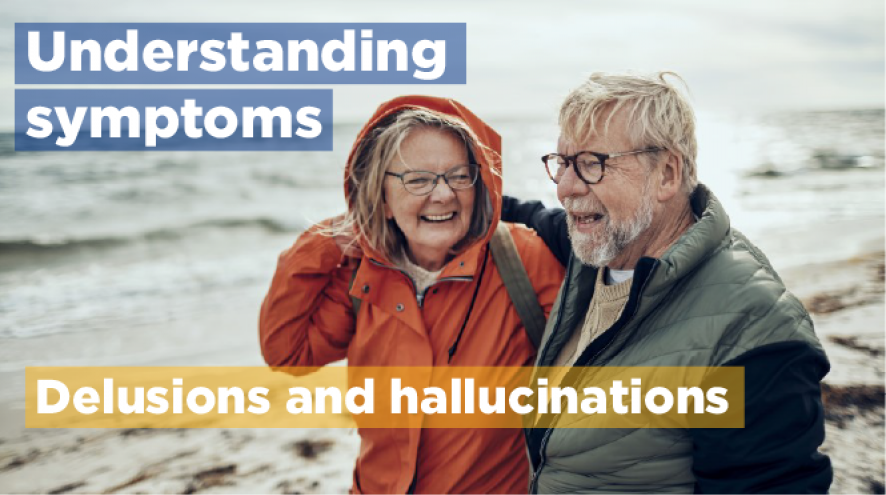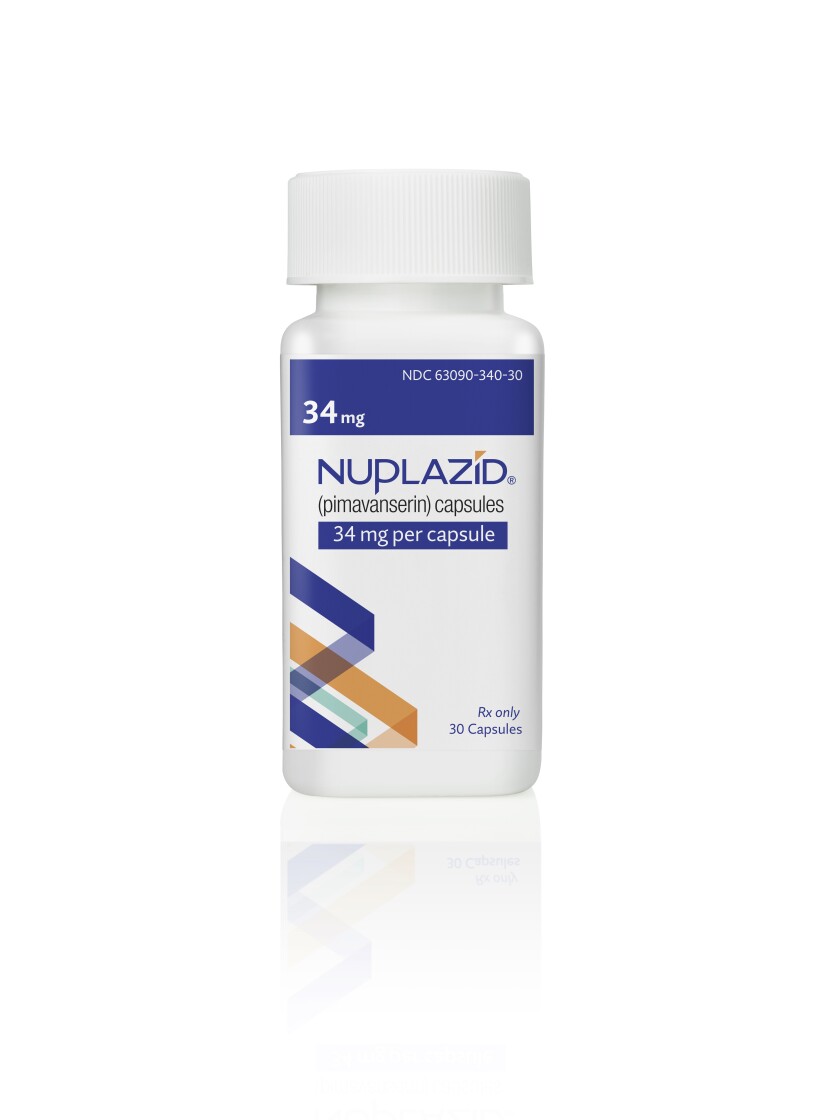- Get link
- X
- Other Apps
Hallucinations and delusion are seen in roughly 75 percent of those with Lewy body dementia half of those with Parkinsons disease dementia and a third of individuals with Alzheimers. In other dementias delusions are more common than hallucinations which occur well into the disease cycle if at all and are less often visual.
 Hallucinations And False Ideas In Dementia Mydr Com Au
Hallucinations And False Ideas In Dementia Mydr Com Au
The majority of these patients require support from family caregivers though caregivers are often the target of delusions.

Dementia hallucinations and delusions. While theyre alike in some ways theyre not the same thing. They think it might be because of changes in the brain from treatment or just the disease itself. While delusions involve false beliefs hallucinations are false perceptions of objects or events that are sensory in nature.
It usually causes visual hallucinations. It sometimes happens with other types of dementia like Lewy body. More than 90 percent of patients with dementia will have one or more behavioral or neuropsychiatric symptoms such as depression anxiety delusions hallucinations agitation and aggression.
Dementia with Lewy bodies DLB is a type of dementia characterized by changes in sleep behavior cognition movement and autonomic bodily functionsMemory loss is not always an early symptom. For example a person with Alzheimers may see children playing. Hallucinations can also be caused by physical illness including fever seizure stroke migraine and infection.
The Difference Between Hallucinations and Delusions. They are more common in people with dementia with Lewy bodies and Parkinsons disease dementia. People with Alzheimers disease can also have hallucinations.
Keep in mind that a person with dementia is trying to make sense of his or her world with declining cognitive function. Hallucinations and delusions are symptoms of Alzheimers disease and other dementias. Even if you give evidence about something to the person with dementia she will not change her belief.
With either of these they are not experiencing things as they actually are. For example a person with dementia may have a delusion in which she believes. Why Does Dementia Cause Delusions Hallucinations and Paranoia.
Neuropsychiatric behavioral andor psychological symptoms which include hallucinations and delusions are common among people with dementia and their onset can occur at various times over the course of the disease. Too much stimulation in the environment noise people and other distractions unfamiliar places and people a variation in routine and interactions between medications can all contribute to hallucinations and delusions. As caregivers we can better respond when we understand these symptoms.
Alzheimers and Hallucinations Delusions and Paranoia. Your doctor may prescribe antipsychotic medications to help keep your hallucinations. With hallucinations or delusions people do not experience things as they really are.
Hallucinations and delusions are common in older people with Alzheimers disease and other types of dementia. The presence of hallucinations andor delusions may be associated with an increased risk of cognitive and functional decline institutionalization and death among patients with dementia. When healthy nerve cells in the brain begin to degrade and cease to connect with other cells in the brain the symptoms of dementia that often include delusions paranoia or hallucinations will begin to appear.
Fluctuating good days and bad days are another hallmark of LBD. In general people will lose a certain percentage of neurons as they grow older but seniors who suffer from dementia will suffer a higher percentage of cell loss than normal. Over half of all people with this condition have hallucinations or delusions.
A delusion is not the same thing as a hallucination. On a good day thinking is clear and these illusions hallucinations and delusions. Delusions or strongly held false beliefs are a common symptom for a person with dementia.
They can take the form of paranoia which makes the person feel threatened even if there is no or little reason to feel this way. 11-25 Hallucinations and delusions in this population often present as symptoms of dementia. Dementia can make a person suspicious of the people around them.
Delusions are false beliefs. The disease worsens over time and is usually diagnosed when cognitive decline interferes with normal daily functioningTogether with Parkinsons disease dementia DLB is one of the two Lewy body dementias. 7-10 Approximately 24 million people with dementia in the US experience hallucinations and delusions.
Hallucinations involve hearing seeing smelling or feeling things that are not really there. Persons with Alzheimers disease or other dementias can sometimes experience hallucinations or delusions. TO GET A SPOT TO THE UPCOMING LIVE TRAINING AND QA SESSION CLICK HERE.
Visual hallucinations are usually caused by damage to the brain. Hallucinations and delusions can be the result of the changes that dementia causes in the brain but there are several other potential causes. Visual hallucinations are one of the hallmark symptoms in Lewy body dementia LBD and often occur early in the illness.
Due to complex changes occurring in the brain people with Alzheimers disease may see or hear things that have no basis in reality. Experts arent sure why.
 Delusions And Hallucinations Alzheimer Society Of Canada
Delusions And Hallucinations Alzheimer Society Of Canada
 Prevalence Of Delusions And Hallucinations In Patients With Dementia Download Scientific Diagram
Prevalence Of Delusions And Hallucinations In Patients With Dementia Download Scientific Diagram
 Responding To Delusions And Hallucinations Understanding The Message Dementia Support Australia
Responding To Delusions And Hallucinations Understanding The Message Dementia Support Australia
 What Is Lewy Body Dementia The Ruby Pardue Blackburn Adult Day Health Care Center
What Is Lewy Body Dementia The Ruby Pardue Blackburn Adult Day Health Care Center
 Dementia Symptoms Illusions Hallucinations And Delusions
Dementia Symptoms Illusions Hallucinations And Delusions
/GettyImages-589889979-56846d595f9b586a9e0aaae2.jpg) Responding To Hallucinations In Lewy Body Dementia
Responding To Hallucinations In Lewy Body Dementia
 Dementia Related Hallucinations And Delusions Perspectives
Dementia Related Hallucinations And Delusions Perspectives
/lewy-body-dementia-stages-progression-98735-01-2050d2180cf54e749c8bb8808352b326.png) Stages And Progression Of Lewy Body Dementia
Stages And Progression Of Lewy Body Dementia
 Pin On Alzheimer Dementia Caregivers
Pin On Alzheimer Dementia Caregivers
 Prevalence Of Hallucinations And Delusions In Major Types Of Dementia Download Scientific Diagram
Prevalence Of Hallucinations And Delusions In Major Types Of Dementia Download Scientific Diagram
 Drug Helped Dementia Patients Curb Their Hallucinations And Delusions Los Angeles Times
Drug Helped Dementia Patients Curb Their Hallucinations And Delusions Los Angeles Times
Hallucinations Delusions And Paranoia
 How To Cope Hallucinations Delusions And Paranoia Related To Dementia Lewy Body Dementia Uk
How To Cope Hallucinations Delusions And Paranoia Related To Dementia Lewy Body Dementia Uk
 Understanding Hallucinations And Delusions In Alzheimer Amp 8217 S
Understanding Hallucinations And Delusions In Alzheimer Amp 8217 S
Comments
Post a Comment